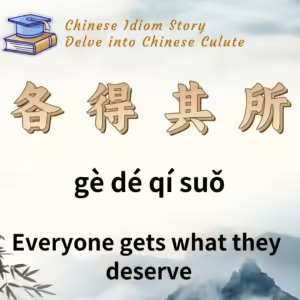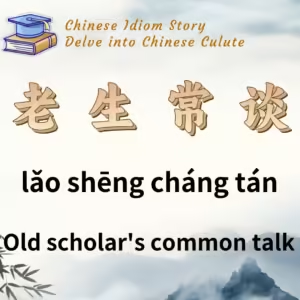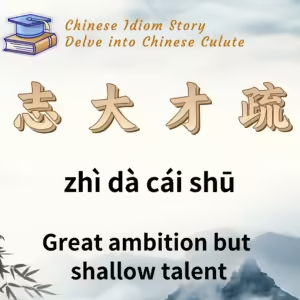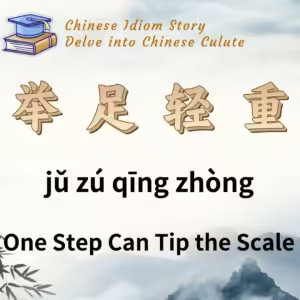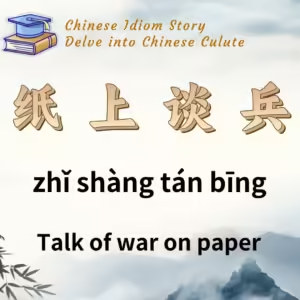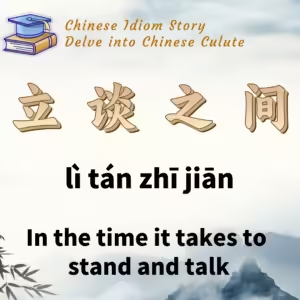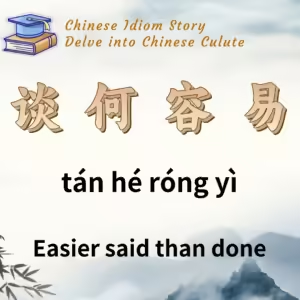
Chinese Idiom: 谈何容易 (Tan He Rong Yi)
English Translation: Easier said than done.
pīn yīn: tán hé róng yì
Idiom Meaning: This idiom describes how something is often much harder to accomplish than it is to talk about.
Historical Source: Book of Han (Han Shu), Biography of Dongfang Shuo
Idiom Story:
Dongfang Shuo, a well-known literary figure from the Western Han Dynasty, was famous for his witty and humorous personality, as well as his straightforward nature. He served in the court of Emperor Wu of Han and held the position of Taizhong Dafu, a high-ranking court official. Although Dongfang Shuo made many valuable suggestions about the governance of the empire, many of his ideas were ignored.
On one occasion, Dongfang Shuo submitted a proposal to strengthen the country through agriculture and military reforms, but it was once again disregarded by the emperor. Frustrated by the emperor’s lack of interest, Dongfang Shuo composed a satirical essay titled The Discourse on Mr. Feiyou (Feiyou Xiansheng Lun) to express his discontent.
In this essay, Dongfang Shuo created a fictional story about a character named Mr. Feiyou, who had been serving as an official in the state of Wu for three years without ever speaking about politics. The King of Wu criticized him, saying: “If you have talent and refuse to speak up, you are being disloyal. If you share your ideas and I don’t accept them, it would be my fault. But how can you blame me if you remain silent?”
Mr. Feiyou listened to the king’s words but continued to remain silent, bowing politely without uttering a single word. The king, still eager for advice, patiently urged him again: “Sir, please speak. I sincerely want to hear your thoughts.”
Finally, Mr. Feiyou responded with a sigh: “Ah! Is it possible to speak now? Is it really possible? Speaking—how could it be so easy?” (谈,何容易?) He then told stories of loyal ministers from history, like Guan Longfeng and Bi Gan, who had been executed for speaking truthfully to their rulers, and of deceitful men like Feilian and E Lai, who rose to power through flattery. Mr. Feiyou pointed out that even wise ministers like Jieyu and Jizi chose to withdraw from society because their rulers were too corrupt to listen to their advice.
Upon hearing these historical examples, the King of Wu was not angry but instead enlightened by the wisdom in Mr. Feiyou’s words. The king was deeply moved and later implemented reforms, leading to a period of prosperity in the state of Wu.
From this story, the phrase “谈何容易” (easier said than done) became a popular saying, indicating that offering advice or speaking the truth is often much more difficult and complicated than it seems.

